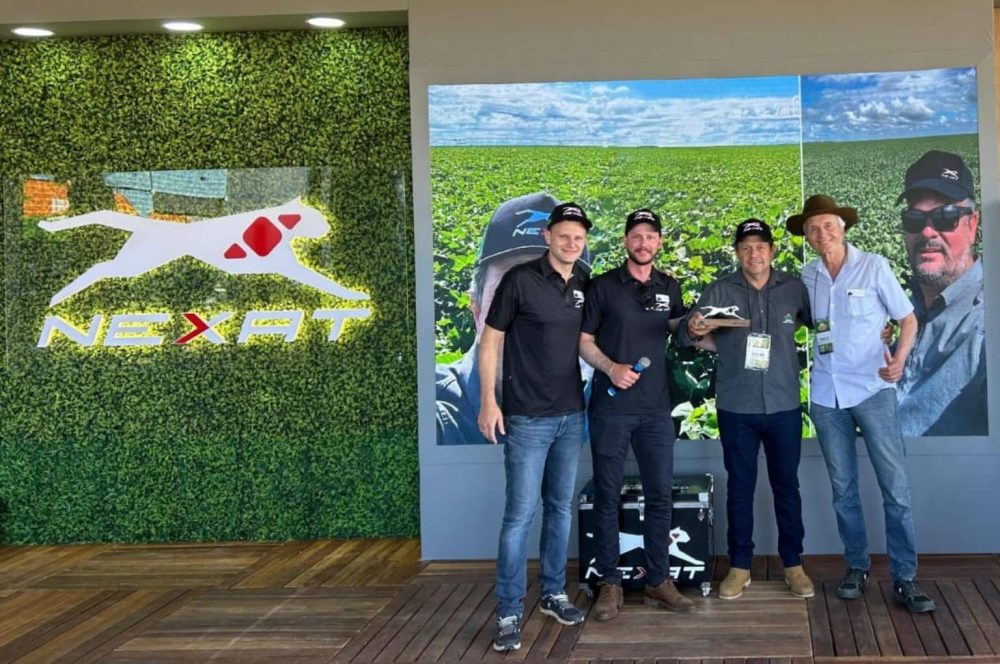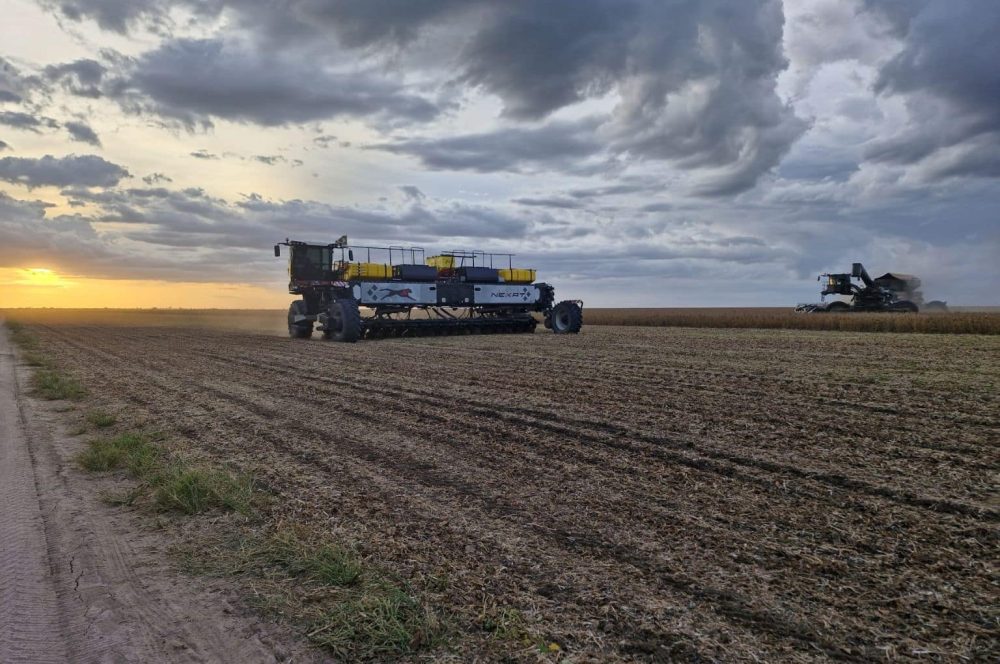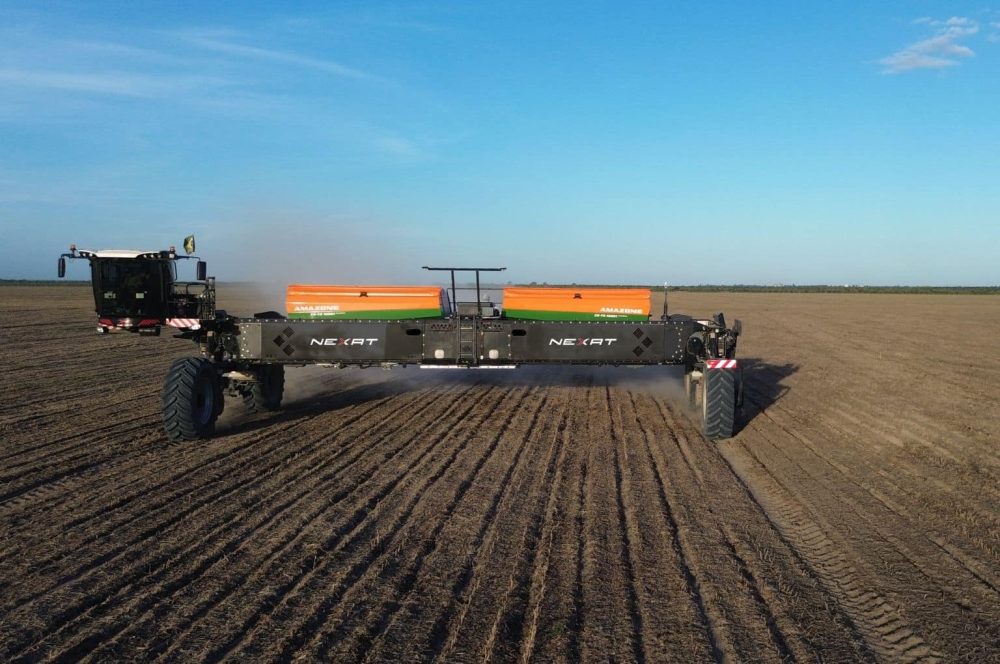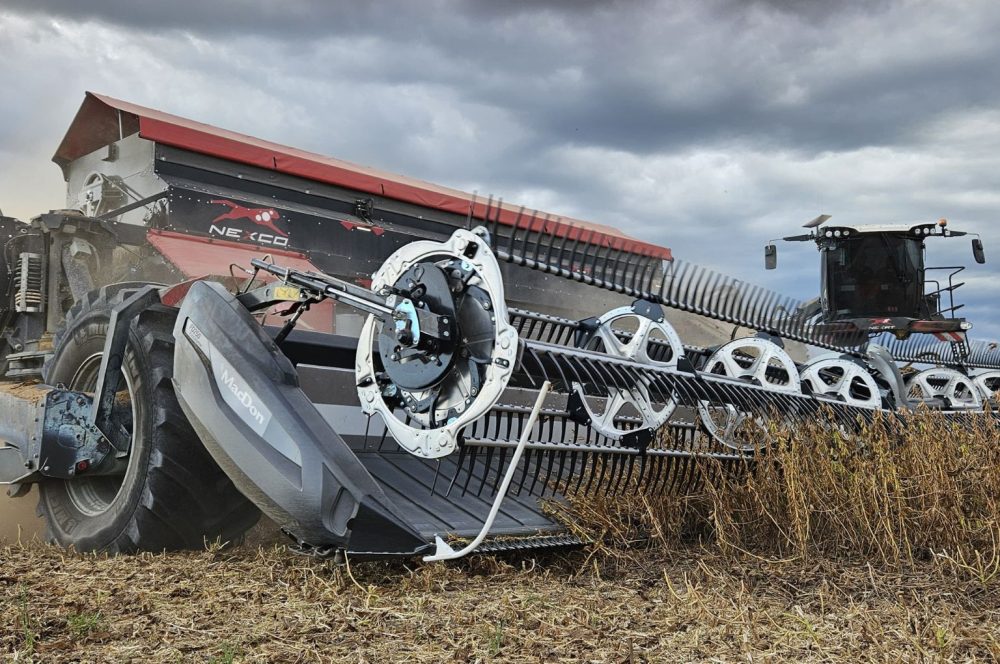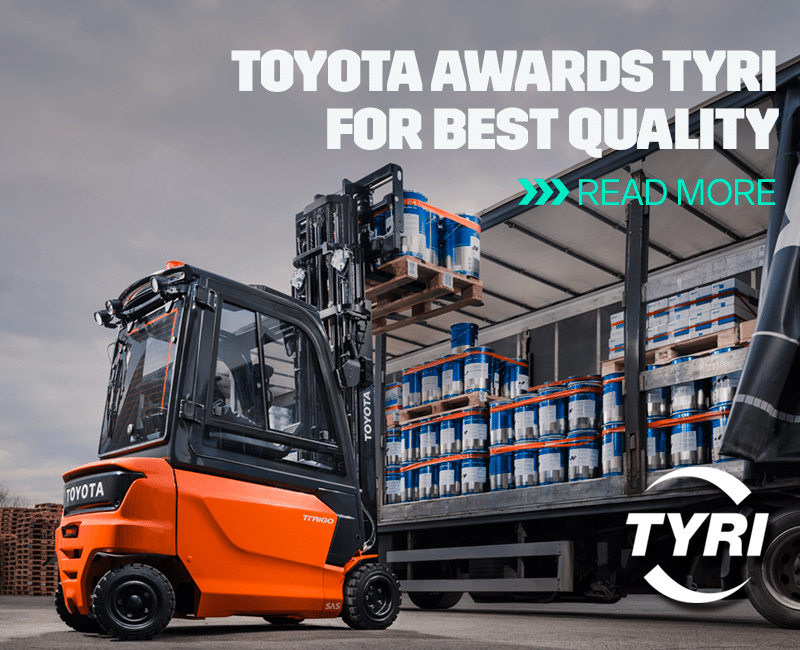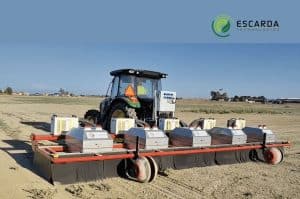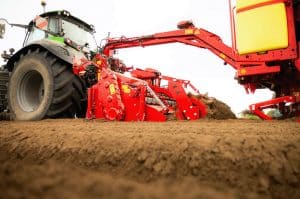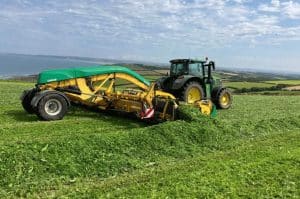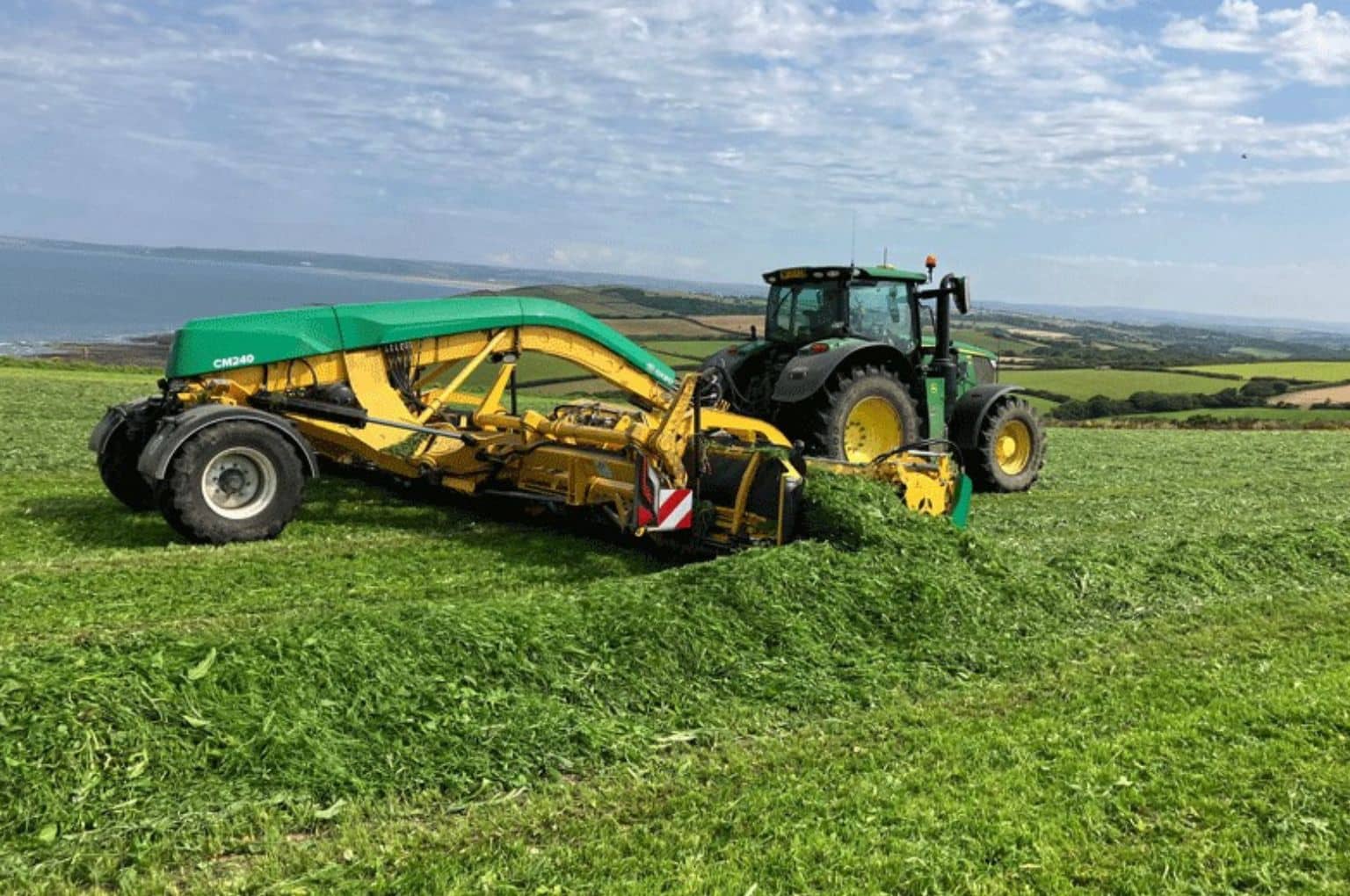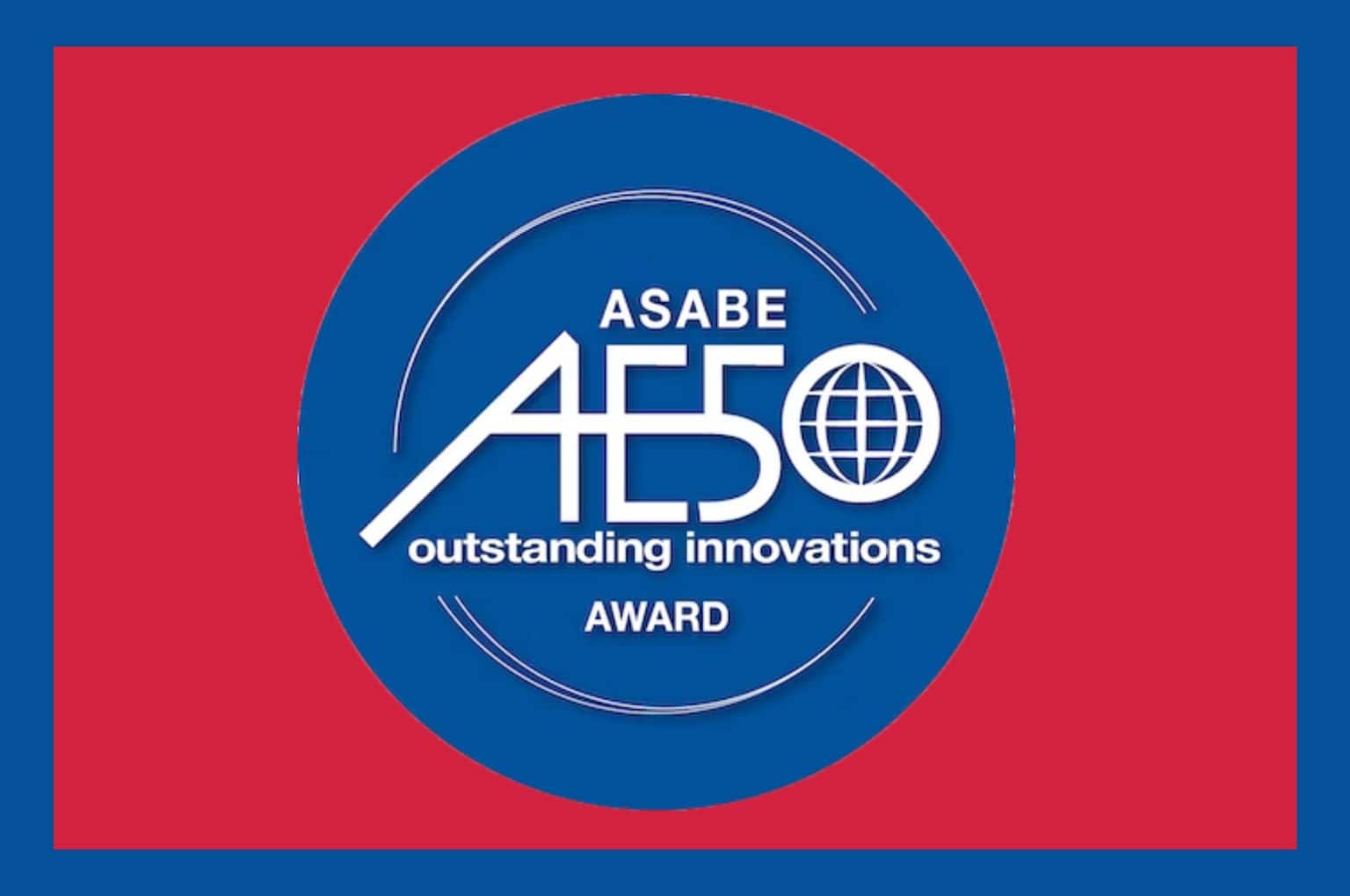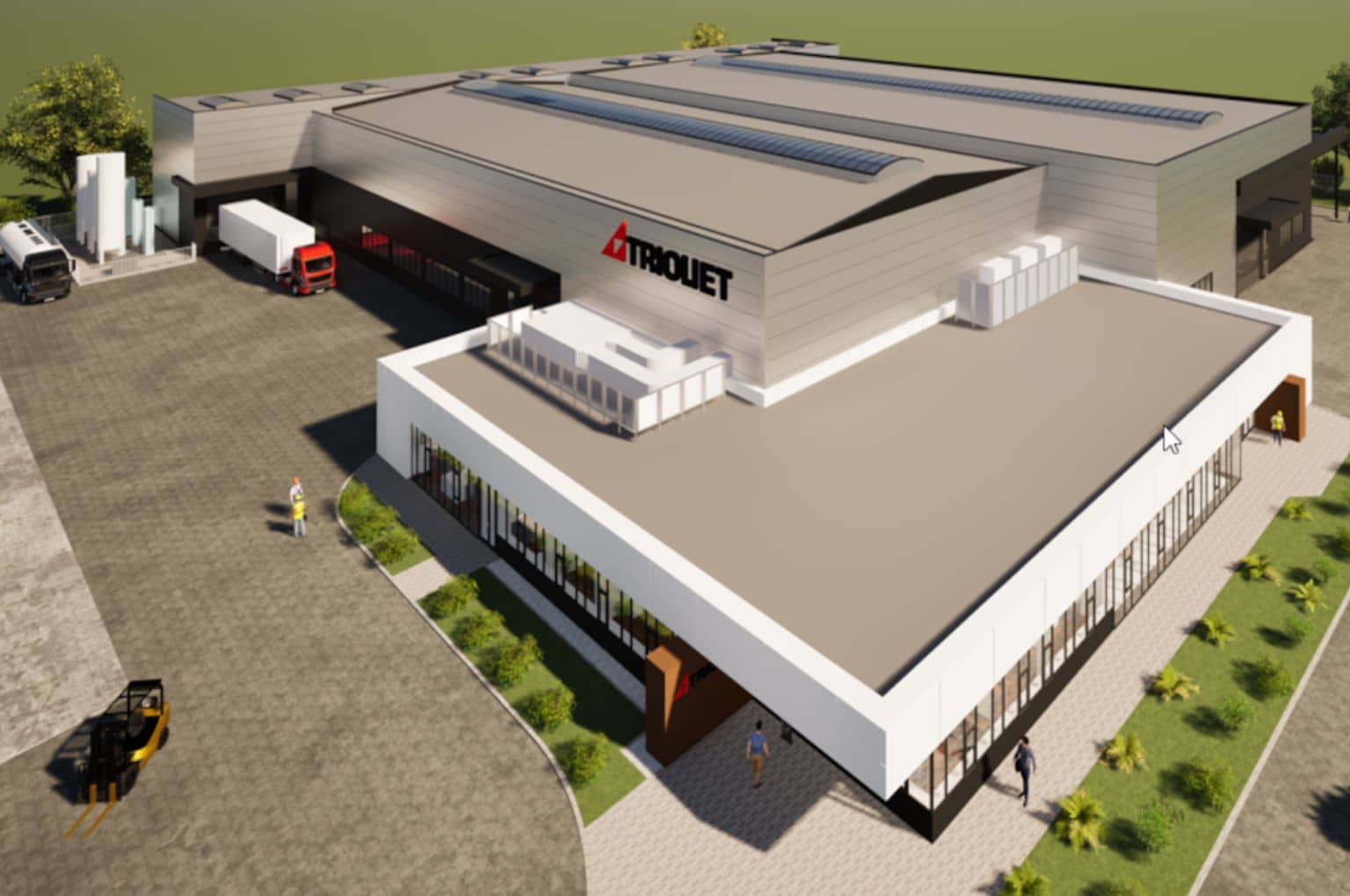After successful product validation under local conditions since 2022, NEXAT officially launches commercial operations in Brazil. With the full portfolio of implements, services, and a local NEXAT subsidiary, the company will offer a full-line system, completed with local manufacturers.
NEXAT is a wide-span carrier vehicle which stands for “Next Generation Agriculture Technology”, a globally unique system that replaces multiple machines with one integrated solution.
The three goals of NEXAT are:
1) Increase profits by reducing machinery, fuel use, and downtime.
2) Boost yields through precision technology and efficient fieldwork.
3) Improve soil quality, water infiltration rate, and water storage capacity.
During a formal ceremony at the recently held Bahia Farm Show in Brazil, Klemens Kalverkamp (CEO and Founder of NEXAT GmbH), Vinicius Marchioro (General Manager of NEXAT do Brasil), and Benedikt Pohl (Head of Global Sales and Service) officially announced the foundation of NEXAT Brasil, in the presence of Ricardo Basso, owner of the Bananal Farm where NEXAT had been tested.
The area cultivated with the NEXAT was gradually expanded. The results clearly demonstrate how the system can fully leverage its advantages under Brazilian conditions, improving soil structure and increasing productivity.
“Brazil, as one of the world’s largest agricultural markets, is perfectly positioned to benefit from the NEXAT System. “NEXAT enables Brazilian farms to cut costs, raise yields, and improve soil quality, all in one integrated system,” stated Klemens Kalverkamp.
At the heart of the NEXAT system lies Widespan Controlled Traffic Farming (WS-CTF), a unique approach that minimizes soil compaction, enhances water storage and improves soil fertility, truly advantages given Brazil’s climatic challenges.
With modern technologies such as diesel-electric drive, fully automated track guidance, and a Plug & Play modular structure, NEXAT enhances efficiency, sustainability, and climate neutrality in agriculture.
First deliveries of NEXAT in Brazil are scheduled for 2025. The launch is accompanied by the establishment of regional service hubs and partnerships with local implement manufacturers to ensure comprehensive support and reliable spare parts supply.



